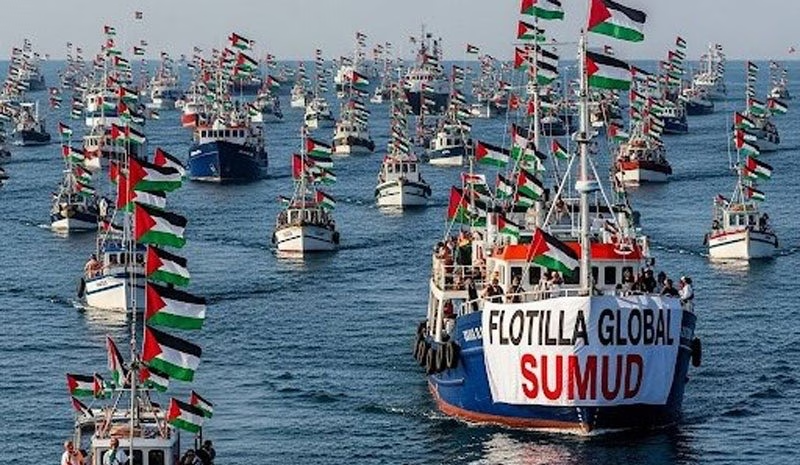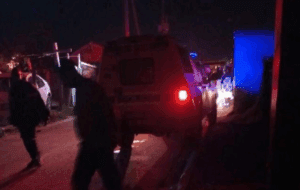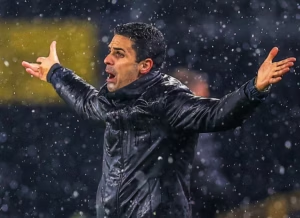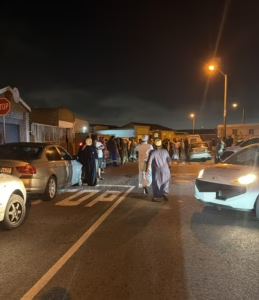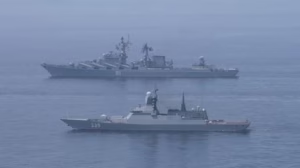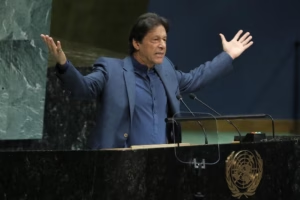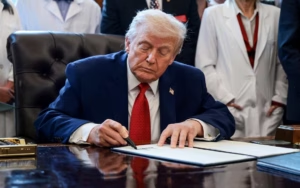Israeli naval personnel have intercepted a flotilla of civilian boats attempting to deliver medical supplies and food to Gaza, with organisers claiming the vessels were boarded in international waters on Wednesday night.
The mission, known as the Global Sumud Flotilla, is comprised of more than 40 civilian boats with around 500 people on board, including parliamentarians, lawyers and activists such as Swedish climate campaigner Greta Thunberg. Its aim has been to challenge Israel’s blockade of Gaza, which has been in place since 2007.
Communications jammed before boarding
According to organisers, communication links between the boats were disrupted before the boarding operation. The interference cut off live streams and disabled ship-to-ship channels that were transmitting footage from the flotilla.
“Multiple vessels … were illegally intercepted and boarded by Israeli Occupation Forces in international waters,”
the organisers said in a statement, adding,
“We are diligently working to account for all participants and crew.”
Passengers reported seeing around 20 Israeli vessels approaching the flotilla as those on board donned life jackets and prepared for a takeover. Some boats were said to have continued towards Gaza despite the interceptions.
Milano, ora.#flotilla #FreeGaza pic.twitter.com/ppwq1zF4tG
— Luca Caputa 🖤💙 (@luca_caputa) October 1, 2025
Israel’s position on the blockade
The Israeli military has not yet provided a statement in response to the reports. However, the foreign ministry said earlier that the flotilla had been warned against entering an active combat zone and had been reminded of the blockade’s legality. The ministry said the navy had again offered to transfer the aid through what it described as secure humanitarian channels.
Israeli officials have long criticised the initiative, portraying it as politically motivated rather than humanitarian. Jonathan Peled, Israel’s ambassador to Italy, wrote on X that,
“This systematic refusal (to hand over the aid) demonstrates that the objective is not humanitarian, but provocative. They are not seeking to help, they are seeking an incident.”
Repeated encounters at sea
Wednesday marked the flotilla’s second encounter with Israeli forces that day. Before dawn, organisers reported that two Israeli “warships” had encircled two vessels and shut down their navigation and communications systems. One organiser described this as a
“cyber attack”
.
The Global Sumud #Flotilla is being intercepted by the Israeli navy.
So close to Gaza, yet so far.
A state so terrified of compassion it blockades bread & medicine. pic.twitter.com/ROPEnqROfZ
— ✪ Ahmed badyan (@medobadyan) October 1, 2025
A video posted on the flotilla’s Instagram page showed what appeared to be the silhouette of a military ship near the civilian vessels. While Reuters confirmed the footage originated from the flotilla, the news agency could not independently verify the identity of the vessel or the timing of the recording.
Previous incidents
This is not the first confrontation faced by the flotilla. Last week, organisers said drones dropped stun grenades and itching powder onto boats, causing damage but no casualties. Israel did not comment on that incident, although it has repeatedly stated it would take any necessary action to prevent the flotilla from reaching Gaza.
Israel has enforced a naval blockade on Gaza since Hamas seized control of the enclave in 2007. Over the years, activists have made several attempts to breach it. In 2010, nine activists were killed when Israeli troops boarded a flotilla of six ships carrying more than 700 pro-Palestinian activists from 50 countries.
More recently, in June this year, Israeli forces detained Greta Thunberg and 11 crew members from a smaller vessel organised by the Freedom Flotilla Coalition.
European response
As the latest flotilla advanced, European countries called for restraint. Italy and Greece issued a joint appeal to Israel not to harm those on board, and urged the activists to hand over their supplies to the Catholic Church for indirect delivery into Gaza. That request, however, was rejected by the organisers.
Both Italy and Spain deployed naval vessels to observe and provide assistance if needed. These ships withdrew once the flotilla reached within 150 nautical miles of Gaza, citing safety concerns. Turkish drones were also seen following the convoy.
Legal questions raised
The interception has renewed debate over the legality of the blockade and Israel’s right to act beyond its own territorial waters. Francesca Albanese, the United Nations Special Rapporteur on the situation of human rights in the Palestinian territories, told reporters that any action against the flotilla would breach international law.
“Any interception of the flotilla would be yet another violation of international law, the law of the sea,”
Albanese said, adding that Israel had no jurisdiction in waters off Gaza.
A continuing standoff
Despite warnings and previous attacks, the organisers of the Global Sumud Flotilla have vowed not to retreat. Their statement insisted that the mission
“will continue undeterred”
, maintaining their intention to reach Gaza even as Israel repeats that it will enforce the blockade by any means.
The flotilla had intended to arrive in Gaza on Thursday morning if it was not intercepted. With clashes at sea escalating, the incident underscores the increasingly high-stakes struggle over humanitarian access to the besieged enclave.

